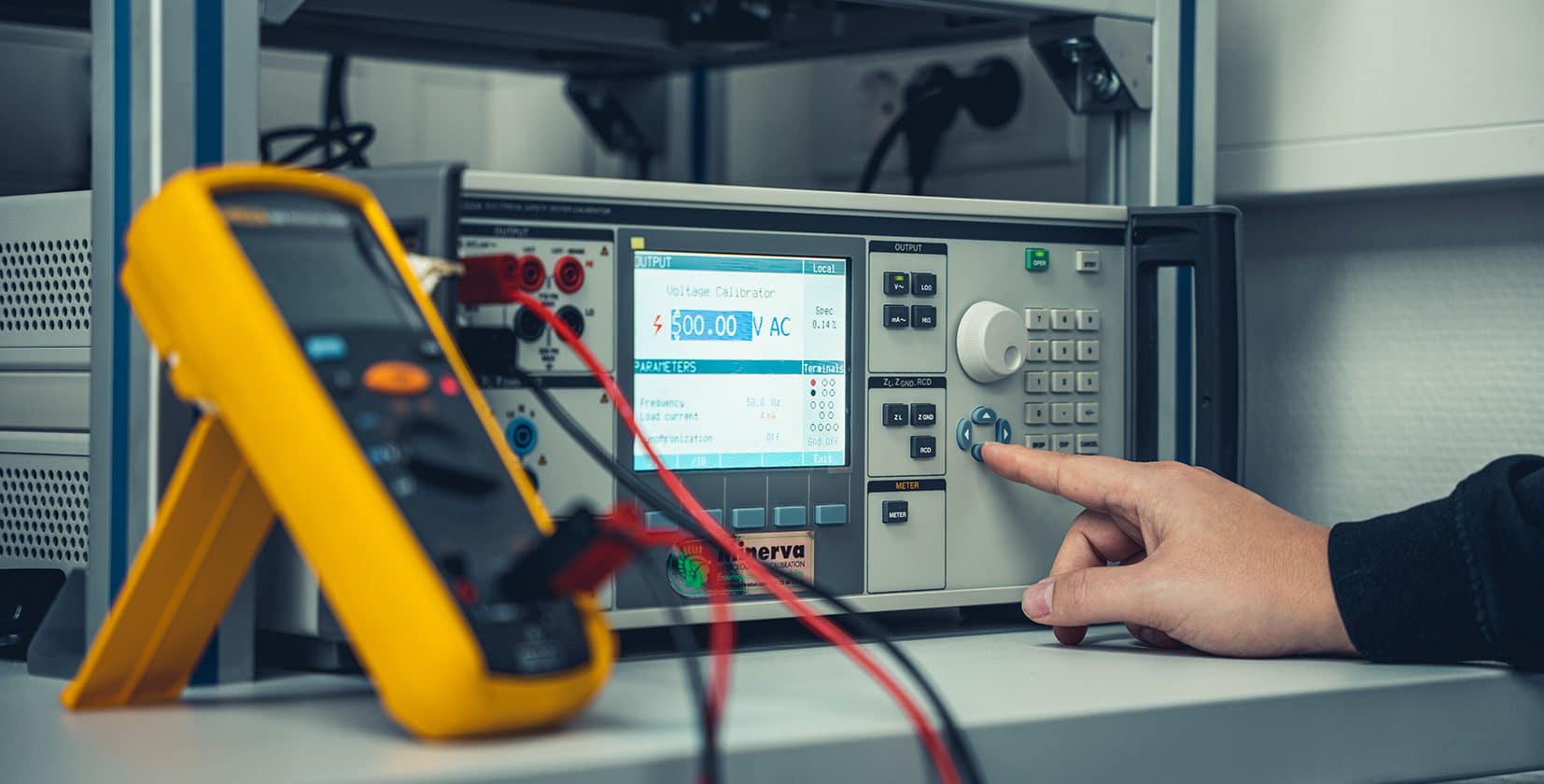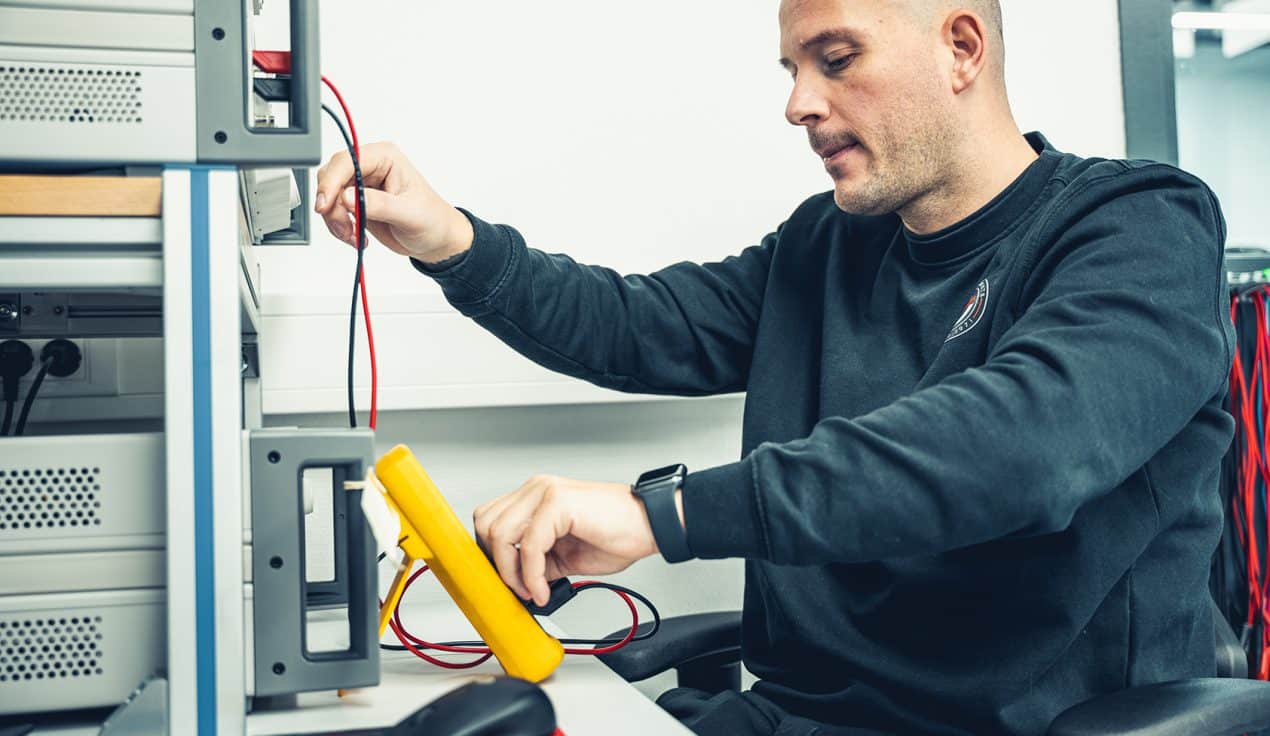
ELECTRICAL CALIBRATION IS AN ESSENTIAL PART OF QUALITY CONTROL FOR ANY ELECTRONIC MEASURING DEVICE
Electrical calibration is the process of verifying the accuracy of an electrical measuring instrument. The procedure involves comparing the readings of the instrument under test to those of a reference standard. In order to ensure reliable results, it is important to use a calibrated reference standard that has been checked against a known value.
There are a number of different electronic instruments that require electrical calibration, including multimeters, clamp meters, and megohmeters. Each type of instrument has its own unique set of calibration requirements. However, the basic principle remains the same: to verify that the instrument is providing accurate readings. Electrical calibration is an essential part of quality control for any electronic measuring device. Without it, there would be no way to know if the instrument provided the correct information. With electrical calibration, you can be confident that your measurements are accurate.
Why do your electrical calibration at GMS Instruments
GMS Instruments is the official service HUB for many of our represented brands. All our engineers are trained and experienced with almost all FLUKE electrical calibration instrumentation. With our renovated service center in 2023, our in-house facility’s instrumentation and electrical calibrators are state-of-the-art and guarantee high accuracy. With every calibration report, we provide international traceable certification. Ask our specialist for more info.
- Trained and experienced by and with Fluke
- International tracable certificates
- Newest Tradinco, Fluke and WIKA calibration equipment
- Usage of original spare parts only
 Calibration with FLUKE
Calibration with FLUKEFluke is a manufacturer of electronic test and measurement instruments. In addition to producing multimeters, they manufacture Fluke instruments used in various industries for calibration and testing. While Fluke instruments are very reliable, they should be calibrated on a regular basis to ensure accuracy. There are two main Fluke calibration types: factory and field calibration.
Factory calibration is performed by Fluke at their factory or service partner and is the most accurate type of calibration. Field calibration is performed by trained technicians in the field, and it is less accurate than factory calibration. Fluke recommends that their instruments be calibrated at least once per year but more often if they are frequently used or in demanding environments. When calibrating Fluke instruments, it is important to use high-quality calibrators and follow the instructions carefully to ensure accurate results. GMS Instruments calibrates with and by the factory standards held by Fluke. All our technicians are trained by Fluke.
Flukecal
Flukecal is a new calibration tool from Fluke. It’s designed to quickly and easily calibrate a.o. Fluke multimeters. Flukecal offers three different modes: auto, manual, and step. In auto mode, Flukecal automatically adjusts the reference voltage and current to match your multimeter. In manual mode, you can set the reference voltage and current yourself. And in step mode, Flukecal steps through each range of the multimeter, so you can see how accurate your measurements are at each range. Flukecal is easy to use and gives you confidence in your measurements. Ask our technicians for more information on how Flukcal can help your business.
Multimeter calibration
Multimeter calibration is the process of verifying the accuracy of a multimeter and adjusting it if necessary. Multimeters are typically calibrated against a known standard, such as a voltage reference or another multimeter. The accuracy of a multimeter can drift over time, so it’s important to calibrate it regularly to ensure that it remains accurate. Multimeter calibration should be performed at least once a year, but more often if the multimeter is used frequently or in critical applications.
There are a few different methods for multimeter calibration, but two-point calibration is the most common. This involves setting the multimeter to a high voltage and then a low voltage (for instance, 2.5V and 0.5V) and measuring the multimeter’s output at each voltage. If the multimeter reads accurately, it should read 2.5V at the high and 0.5V at the low voltage points. If it doesn’t, you’ll need to adjust the multimeter’s calibration settings until it does.
Multimeter calibration is necessary because even a tiny error in multimeter readings can lead to big problems. For example, if you’re testing a circuit with a slightly inaccurate multimeter, you might think the circuit is fine when it’s not. This could cause you to miss a significant problem that could set you back with downtime and money. That’s why it’s always best to use a trusted multimeter calibration service to ensure your multimeter is as accurate as possible. GMS Instruments offers multimeter calibration services for all Fluke multimeters, Extech multimeters and other brands. We provide quick turnaround times, international traceable certification and comprehensive calibration reports. Contact us today to learn more about our multimeter calibration services.
